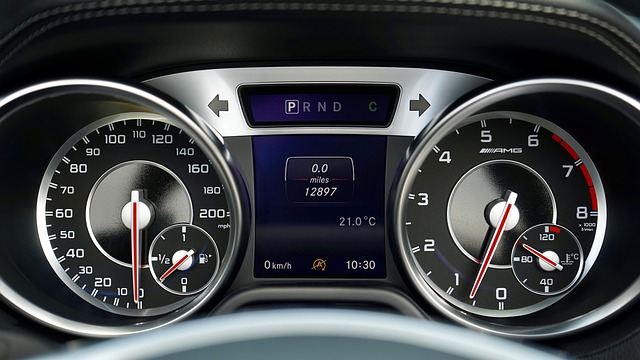When it comes to your vehicle’s performance, one factor many drivers often overlook is the health of the electrical system. Unnoticed electrical faults can quietly reduce your fuel efficiency over time, causing you to spend more at the pump and potentially endure bigger mechanical problems down the line. In this article, we’ll look in detail at how electrical issues can impact your fuel consumption, the signs to watch out for, what causes these problems, and how they can be resolved. If you’re based in New Zealand and suspect your vehicle might be suffering from an unseen electrical fault, this guide will help you understand the implications and your next steps.
How Electrical Faults Impact Vehicle Fuel Efficiency
Failing Sensors Can Cause Engine Mismanagement
Your vehicle relies on multiple sensors to ensure optimal performance, including oxygen sensors, mass airflow sensors, and the throttle position sensor. When any of these start to malfunction due to an electrical fault, your engine’s computer receives incorrect data. This can result in an imbalanced air-fuel mixture or improper ignition timing—both of which directly impact fuel consumption. For example, a faulty oxygen sensor may cause the engine to run rich, burning more fuel than necessary and reducing mileage significantly.
In New Zealand, where vehicles often traverse a mix of city, rural, and coastal roads, accurate sensor readings are essential for fuel efficiency. Any discrepancy in sensor data can have a knock-on effect, reducing both performance and economy.
Battery and Charging System Problems Increase Fuel Use
Your car’s alternator charges the battery and runs all electrical systems while the engine is on. If there’s a fault with the alternator or battery, the engine has to work harder to produce the electricity needed by the vehicle. This additional load increases fuel consumption. A poorly operating alternator can also result in undercharging or overcharging of the battery, both of which deteriorate overall system efficiency and may trigger engine warning lights.
In colder regions of New Zealand like the South Island, battery and alternator issues are particularly common during winter months, making routine electrical checks vital to maintain fuel performance.
Malfunctioning Fuel Injectors Due to Electrical Issues
Fuel injectors are a critical part of the combustion process. These are electronically controlled components that spray fuel into the engine at the correct time and pressure. Any electrical fault—like a broken wire or failing ECU (Engine Control Unit)—can affect injector timing and spray pattern. Even a single out-of-sync injector can dramatically affect fuel efficiency across the entire engine.
At Eurosparx, we often see vehicles brought in where customers have experienced poor fuel economy, and the culprit is frequently traced back to improper injector performance caused by electrical malfunction.
Issues with the Engine Control Unit (ECU)
The ECU is the vehicle’s main computer, responsible for controlling various functions including fuel injection, spark timing, and idle speed. If the ECU develops a fault, even minor, it can cause your car to operate inefficiently. For example, your car may idle higher than necessary or delay optimal gear shifts in automatic transmissions, both of which increase fuel consumption over time.
In New Zealand, ECU-related issues can also be exacerbated by sea air exposure, especially in coastal areas, where corrosion becomes a contributing factor. Regular servicing focused on electrical diagnostics can help prevent these problems.
Warning Signs that Electrical Faults Are Affecting Fuel Efficiency
Unexpected Drop in Mileage
One of the first indicators of an electrical fault impacting fuel efficiency is a sudden decrease in the kilometres you can get from a tank of fuel. If your driving habits haven’t changed, and your tyre pressure and load are consistent, yet your fuel consumption has noticeably increased, this could be a sign of a hidden electrical issue.
Dashboard Warning Lights
Modern vehicles are equipped with various warning lights for emissions, engine management, and charging system health. If lights such as the check engine, battery, or electronic throttle control pop up, there’s likely an electrical fault affecting performance and fuel usage. These messages should never be ignored and must be checked with professional diagnostic tools.
Hard Starts or Stalling
A vehicle that cranks longer than usual before starting or stalls unexpectedly could have electrical issues. Problems with wiring, sensors, battery voltage, or the ignition system can disrupt the engine’s performance, causing inefficient fuel use or unnecessary fuel loss during multiple restart attempts.
Erratic Engine Behaviour
Surging, hesitation, or rough idling signal inconsistencies in engine management often rooted in electrical failings. These symptoms indicate your vehicle is not operating at its most efficient, which directly contributes to higher fuel consumption, especially during daily commutes or long drives.
Common Electrical Faults That Affect Fuel Efficiency
Loose or Corroded Wiring
Over time, wiring can become corroded or damaged due to heat, moisture, or vibration. These issues are particularly common in New Zealand where unpredictable weather conditions and coastal air can cause electrical connections to degrade quickly. Faulty wiring can intermittently interrupt electrical signals necessary for optimal fuel and engine management.
Failed Relays or Fuses
Relays and fuses protect and control various electrical circuits in the vehicle. A failed relay could stop crucial engine components from receiving consistent power, while a blown fuse might prevent the sensors from operating entirely. These subtle issues often go unnoticed until performance tanking or unusual fuel use becomes evident.
Bad Ground Connections
Grounding is crucial to every vehicle’s electrical system. Poor grounds can lead to erratic behaviour of the ECU, sensors, or ignition system. This inconsistency can disrupt the delicate fuel-air balance, particularly during idle or acceleration, reducing overall economy.
Additional Considerations About Automotive Electrical Health
Impact of Modern Vehicle Features
Modern vehicles come equipped with far more electronics than older models, including advanced driver assist technologies, infotainment systems, and digital dash clusters, all of which increase the dependency on a stable electrical system. A minor electrical issue in one part of the vehicle can have cascading effects on the entire system, including components related to fuel delivery and combustion timing.
Routine diagnostics by a qualified auto electrician can help catch these interrelated issues early, saving both fuel and repair costs long-term.
Importance of Routine Electrical Checks
Unlike oil checks or tyre inspections, electrical diagnostics aren’t something most drivers think about during routine service. However, these checks are essential, especially in regions where weather and terrain put extra demand on your vehicle. Proactive electrical inspections can reveal small issues before they evolve into significant faults that compromise engine performance and fuel economy.
At Eurosparx in New Zealand, we recommend conducting a full electrical system test during every major service. Even small repairs, like replacing a degraded relay or fixing a loose ground, can lead to noticeable savings at the fuel pump.
DIY Repairs vs. Professional Diagnosis
Electrical systems in modern vehicles are more complex than ever before. While basic checks like ensuring terminals are clean and tight can be done at home, pinpointing a fault that affects fuel efficiency typically requires specialised diagnostic equipment. Attempting to solve these issues without the proper tools can lead to further complications and may invalidate warranties.
If you’re noticing symptoms that suggest an electrical issue, it’s best to consult a qualified auto electrician. Professionals use scan tools that can read fault codes from your ECU and evaluate live sensor data, isolating exact problem areas efficiently and accurately.
Need Help With Electrical Faults Affecting Your Vehicle’s Fuel Efficiency?
Electrical faults in your vehicle can do far more than just cause inconvenience—they can quietly drain your fuel budget and decrease your car’s overall performance. From sensor failures to faulty ECUs, these problems need professional attention to restore your vehicle’s optimal efficiency.
As experienced auto electricians in New Zealand, Eurosparx can help identify and repair electrical faults affecting your fuel efficiency. If you’re noticing higher fuel use or experiencing warning signs discussed in this article, don’t wait. Contact our team today by calling 09 218 7789.


